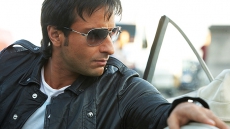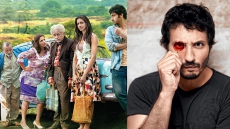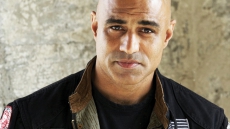Diversification is the name of the game for Vir Das. Not only the comedian continues to travel around the world with his stand-up act, he has a blooming career in film and manages his own advisor business.
Though Weirdass, his comedy consultancy endeavour, Das provides assistance from corporate events to scriptwriting, alongside a team of professionals handpicked by him. Weirdass is likely to also become a film production company towards the end of 2016 or early 2017, focusing on low-budget, high-concept comedies, and using Adam Sandler’s Happy Madison as a blueprint.
DARPAN talked with Das shortly after getting off stage, in the midst of the Pajama Festival, one of India’s largest comedy festival.
Your educational background is quite impressive (includes a program in Harvard). Do you consider your comedy consultancy the result of all your skills combined?
No (laughs). I think of myself as a lousy businessman. I’m a man of ideas that are not always accompanied by numbers. We had the luck of the Irish: The consultancy bled money for the first two or three years, but while that was happening I had a couple of big Bollywood films. That gave the brand the push it needed and all the sudden clients started coming in.
How do you distribute your time between film, stand-up work, and comedy consultancy?
I try to do two to three films a year, which end up taking 45 to 50 days of my time and 30 days to promote. I make sure not to shoot on Saturdays or Sundays, to dedicate them to stand-up comedy.
You generate a lot of material. Is there a method to your creative process?
The idea behind a new comedy special comes to my head while travelling. Typically it would take me six to eight months to come up with a new routine. The longest show I’ve done was called “History Of India”. It made me pick up history books and then I locked myself in a cottage in the north of India for about a month to write it all down. It ended up selling over a quarter of a million tickets over the last four years.
Do you adapt your act to wherever you’re performing, or you expect the audience to adapt to you?
I adapt a little. I’m aware there is a global need for an authentic Indian comedy voice. In the American and British markets, having an accent has always been the punch line, but never the point of view. What I like about performing for those crowds is the opportunity to tell them what an Indian thinks of Obama, Donald Trump or their foreign policy. I may do some local material, but I wouldn’t change the perspective I’m bringing to the table.

A common issue among North American comedians is that audiences are more easily offended than ever. Have you encountered this phenomenon?
I live in a country where being a comedian is a dangerous profession, especially because I don’t believe in censoring my act. Luckily, I’m not a vulgar comedian – most of my act comes from a place of intelligence – so I manage to talk about everything.
What are the topics that interest you today to mine for comedy?
Initially you write about things you believe everybody else would dig: Sex, Bollywood, cricket, etcetera. A couple of years into it, you start writing about what you like. I enjoy history, so I did “History of India”; I like science, so I wrote “Battle Of Da Sexes”. After nine years working as a comic, I decided to tackle something that really scared me: Myself and my journey as a comedian. The material I bring to North America in the “Unbelievablish” tour is extremely personal: Living in America, being fired, not having medical insurance, cancelling a wedding, getting arrested…
The film and TV industry in the US seems to be making a push for diversity. Does it tempt you to return?
The idea of signing with (management agency) CAA is with the intention of breaking into the American market. I know CAA would like me to move to America, but I’m not ready to do that just yet. I definitely see myself spending four to five months a year there, trying to get into television and the stand-up circuit.
What would you say is the biggest misconception about you?
I’ve always believed that your image doesn’t belong to you. Others will always be in charge: One day they decide that you’re famous, likeable, credible or the opposite. The only thing you can control is your talent. It’s really about bringing everything down to baby steps: The next joke, the next clip, the next show. The rest will take care of itself.



